2014 was the hottest year since record-keeping began way back in the 19th century, according to reports released Friday by NASA and the National Oceanic and Atmospheric Administration. According to NASA, the Earth has now warmed roughly 1.4 degrees F since 1880, and most of that increase is the result of greenhouse gases released by humans. Nine of the 10 warmest years on record have occurred since 2000.
NASA and NOAA both conducted their own, independent analyses of the data. But as you can see in the chart below, their results were nearly identical (all images below are from NASA and NOAA’s joint presentation):
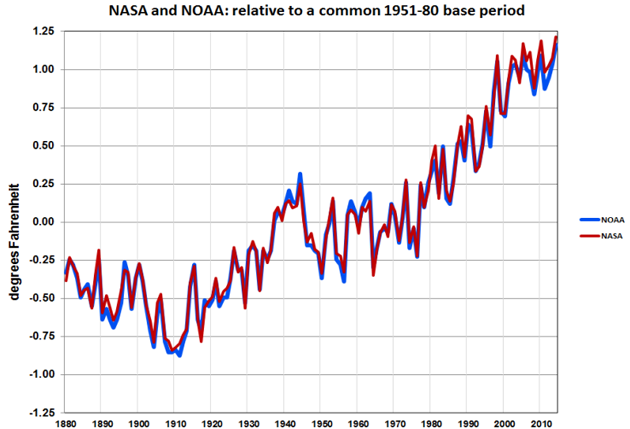
NASA/NOAA
The record warmth wasn’t spread evenly across the globe. Europe, parts of Asia, Alaska, and the Arctic were extremely warm. At the same time, the U.S. Midwest and East Coast were unusually cold, according to NASA’s analysis:
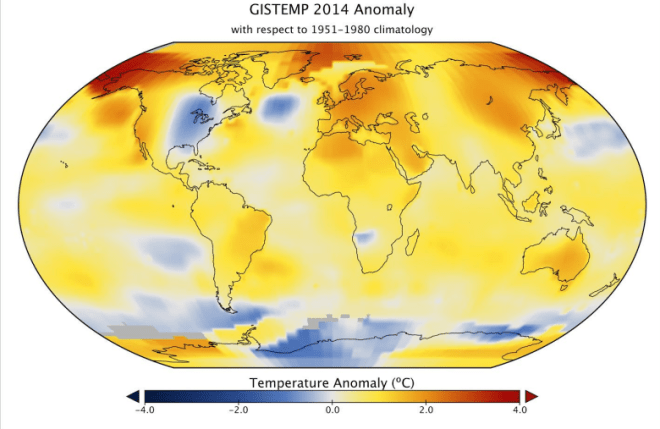
NASA/NOAA
Here’s another version of that map, from the NOAA analysis. This one shows that vast swaths of the oceans experienced record warm temperatures in 2014. Land temperatures in 2014 were actually the fourth warmest on record. But the oceans were so warm that the Earth as a whole was the hottest it has ever been since we started measuring:
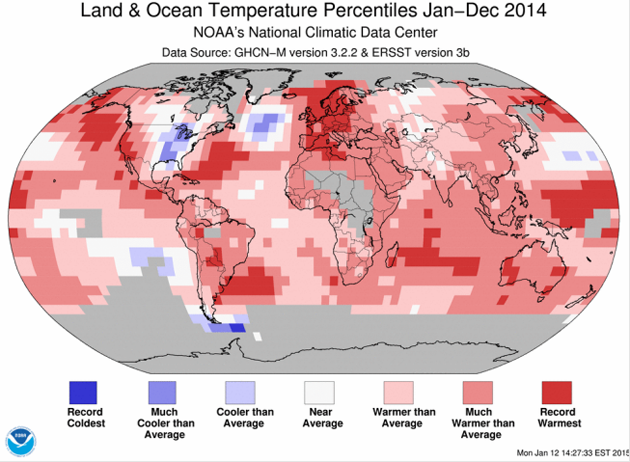
NASA/NOAA
All that warmth has led to a significant loss of sea ice in the Arctic. In 2014, Arctic sea ice reached its sixth lowest extent on record. It was a different story at the South Pole, however. Antarctica saw its highest extent of sea ice on record. According to NASA’s Gavin Schmidt, the factors affecting sea ice in Antarctica — changes in wind patterns, for example — seem to be “more complicated” than in the Arctic, where temperatures and ice extent correlate strongly:
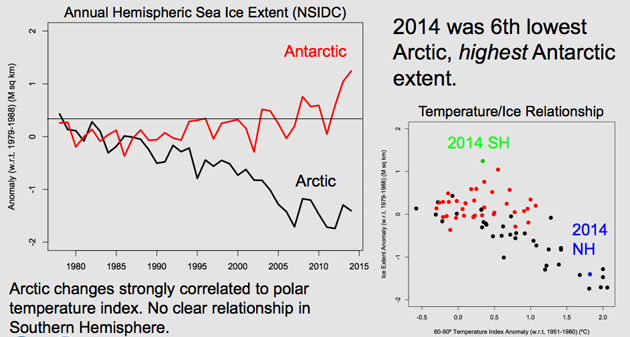
NASA/NOAA
So what’s causing this dramatic warming trend? In short, we are. Check out these charts, which show that if we weren’t pumping greenhouse gases into the atmosphere, the planet would actually be cooling right now:
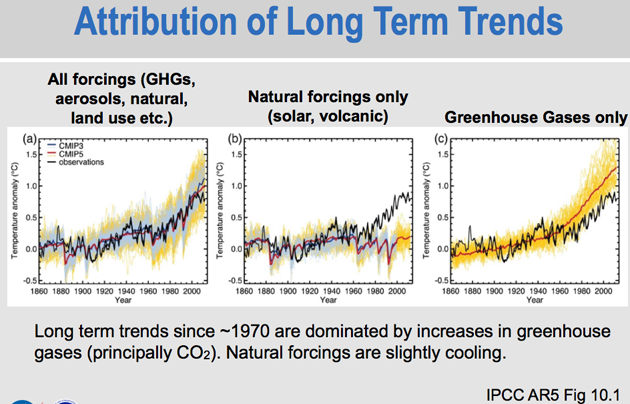
NASA/NOAA
 This story was produced as part of the Climate Desk collaboration.
This story was produced as part of the Climate Desk collaboration.


